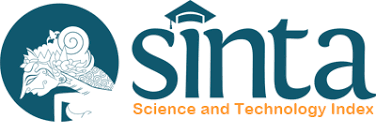The Effectiveness Saffron Tea on Reducing Stress Level Among Nursing Student
Keywords:
Stress, Nursing Student, SaffronAbstract
Globally, around 60% of college students perceived stress. Untreated stress will have a negative impact on students’ quality of life, moreover, it can trigger students to consume drugs and alcohol, or commit suicide. Students’ reluctance to seek help, expensive treatment cost, and long treatment times to reduce stress encouraged us to assess the effects of saffron as an alternative treatment on reducing stress among students. The aim of this study was to evaluate the effect of saffron on students who perceive stress. We conducted an un-blinded experimental study. We recruited 78 nursing students who perceive stress, divided into two groups, the saffron group (n=42) and control groups (n=36). Treatment protocol was: saffron group received saffron as brewed drinks, while control group drinks regular tea. The treatment duration is two weeks. Using the DASS 21 Checklist, we assessed the students at baseline, and after 2 weeks completed therapy to measure the outcome. Finally, the data were analyzed using t test statistical analysis. Saffron had a more significant impact on the stress level among the intervention group. The mean stress scores decreased from 15.4 ± 6.1 to 10.8 ± 5.8 for the saffron group (p < .0001) and from 15.6 ± 5.7 to 14.7 ± 6.4 for the control group (p < .01). Our findings suggest that saffron is as effective to reduce stress level among nursing students
References
Auerbach R, Mortier P, Bruffaerts R, Alonso J, Benjet C, Cuijpers P, et al. Student Project : Prevalence and Distribution of Mental Disorders. J Abnorm Psychol. 2019;127(7):623–38.
Hasanah U, Fitri NL, Supardi S, PH L. Depression Among College Students Due to the COVID-19 Pandemic. J Keperawatan Jiwa. 2020;8(4):421.
Chaabane S, Chaabna K, Bhagat S, Abraham A, Doraiswamy S, Mamtani R, et al. Perceived stress, stressors, and coping strategies among nursing students in the Middle East and North Africa: an overview of systematic reviews. Syst Rev. 2021;10(1):1–17.
Zheng YX, Jiao JR, Hao WN. Prevalence of stress among nursing students: A protocol for systematic review and meta-analysis. Med (United States). 2022;101(31):E29293.
Zheng YX, Jiao JR, Hao WN. Stress levels of nursing students: A systematic review and meta-analysis. Med (United States). 2022;101(36):E30547.
Kristina SA, Mardea NA, Ramadhani F, Ailyah H. Mental Health Literacy among University Students in Yogyakarta. Int Med J [Internet]. 2020;25(4):2243–9. Available from: https://www.researchgate.net/profile/Susi_Kristina/publication/341575326_Mental_Health_Literacy_among_University_Students_in_Yogyakarta/links/5ec7d462458515626cbfd81b/Mental-Health-Literacy-among-University-Students-in-Yogyakarta.pdf
Sarfika R. Stress Pada Mahasiswa Keperawatan Dan Strategi Koping Yang Digunakan. NERS J Keperawatan. 2019;14(2):81.
Han B, Compton WM, Eisenberg D, Milazzo-Sayre L, McKeon R, Hughes A. Prevalence and mental health treatment of suicidal ideation and behavior among college students aged 18-25 years and their non-college-attending peers in the United States. J Clin Psychiatry. 2016;77(6):815–24.
Mak WW, Chio FH, Chan AT, Lui WW, Wu EK. The efficacy of internet-based mindfulness training and cognitive-behavioral training with telephone support in the enhancement of mental health among college students and young working adults: Randomized controlled trial. J Med Internet Res. 2017;19(3):1–22.
Lattie EG, Adkins EC, Winquist N, Stiles-Shields C, Wafford QE, Graham AK. Digital mental health interventions for depression, anxiety and enhancement of psychological well-being among college students: Systematic review. J Med Internet Res. 2019;21(7).
Corrigan PW, Kosyluk KA, Markowitz F, Brown RL, Conlon B, Rees J, et al. Mental illness stigma and disclosure in college students. J Ment Heal [Internet]. 2016;25(3):224–30. Available from: http://dx.doi.org/10.3109/09638237.2015.1101056
Nobiling BD, Maykrantz SA. Exploring Perceptions about and Behaviors Related to Mental Illness and Mental Health Service Utilization among College Students Using the Health Belief Model (HBM). Am J Heal Educ [Internet]. 2017;48(5):306–19. Available from: https://doi.org/10.1080/19325037.2017.1335628
Ghaderi A, Asbaghi O, Reiner Ž, Kolahdooz F, Amirani E, Mirzaei H, et al. The effects of saffron (Crocus sativus L.) on mental health parameters and C-reactive protein: A meta-analysis of randomized clinical trials. Complement Ther Med. 2020;48(November 2019).
Jackson PA, Forster J, Khan J, Pouchieu C, Dubreuil S, Gaudout D, et al. Effects of Saffron Extract Supplementation on Mood, Well-Being, and Response to a Psychosocial Stressor in Healthy Adults: A Randomized, Double-Blind, Parallel Group, Clinical Trial. Front Nutr. 2021;7(February).
Sarris J, Panossian A, Schweitzer I, Stough C, Scholey A. Herbal medicine for depression, anxiety and insomnia: A review of psychopharmacology and clinical evidence. Eur Neuropsychopharmacol [Internet]. 2011;21(12):841–60. Available from: http://dx.doi.org/10.1016/j.euroneuro.2011.04.002
Bekova S, Dementeva J, Smirnov I. Factors associated with depression among university students: the role of students’ satisfaction. J Psychol [Internet]. 2021;1–17. Available from: https://osf.io/9fg8t/download
Giles GE, Mahoney CR, Brunyé TT, Taylor HA, Kanarek RB. Stress effects on mood, HPA axis, and autonomic response: Comparison of three psychosocial stress paradigms. PLoS One. 2014;9(12):1–19.
Pitsikas N. Crocus sativus L. extracts and its constituents crocins and safranal; Potential candidates for schizophrenia treatment? Molecules. 2021;26(5).

















